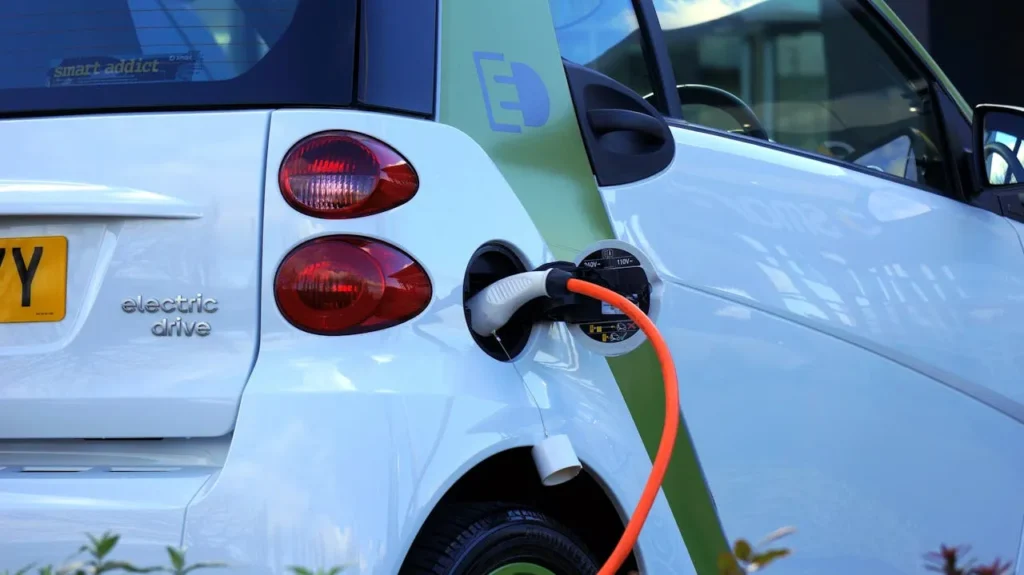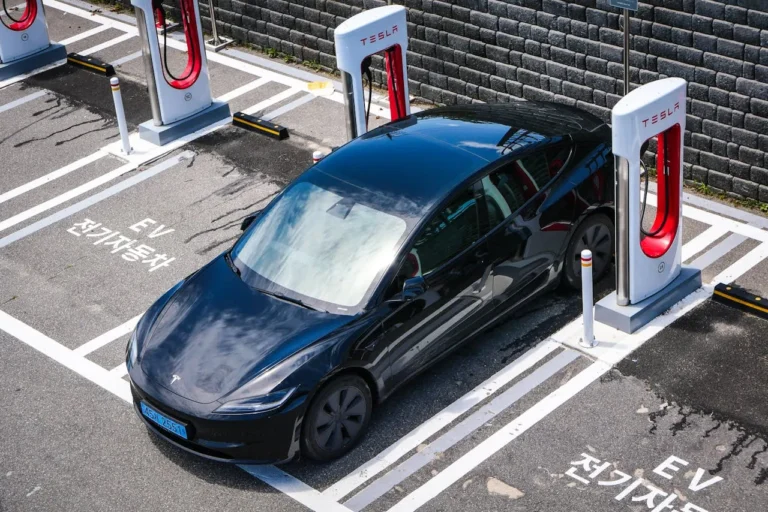EV Charging Stations: The New Frontier of Energy Investment
As the world shifts towards sustainable energy solutions, electric vehicle (EV) charging stations are emerging as a gold mine of opportunity for savvy investors and entrepreneurs. The global transition to electric mobility is accelerating at an unprecedented pace, creating a landscape ripe with potential for those who understand the emerging market dynamics.
The Rising Demand for Electric Vehicle Infrastructure
Governments worldwide are implementing aggressive policies to reduce carbon emissions, which directly translates to massive investments in EV charging infrastructure. The market is projected to grow exponentially, with estimates suggesting that the global EV charging station market could reach $140 billion by 2030. This represents a staggering compound annual growth rate of over 30%, making it an incredibly attractive investment sector.
Key Investment Opportunities
- Urban charging networks
- Highway and interstate charging corridors
- Residential and commercial charging solutions
- Advanced battery and charging technology development
Economic Drivers Powering the EV Charging Revolution
Several critical factors are propelling the explosive growth of EV charging infrastructure. Major automotive manufacturers are committing billions to electric vehicle production, with companies like Tesla, Ford, and Volkswagen pledging to electrify their entire product lines within the next decade. This commitment creates an unprecedented demand for robust charging networks.
Market Expansion Strategies
Innovative companies are developing comprehensive charging solutions that go beyond traditional plug-in stations. Smart charging technologies that integrate renewable energy sources, intelligent grid management, and advanced battery storage are becoming increasingly sophisticated. These technologies offer multiple revenue streams and create complex ecosystems of energy management.
Technological Innovations Driving Investment Potential
The next generation of EV charging stations is not just about electricity—it’s about creating intelligent, interconnected energy platforms. Cutting-edge technologies are emerging that allow for:
- Rapid charging capabilities (80% charge in under 15 minutes)
- Renewable energy integration
- Vehicle-to-grid (V2G) technology
- Advanced data analytics for energy optimization
Geographic Opportunity Landscape
While developed markets like the United States and European countries are leading the charge, emerging markets in Asia present extraordinary growth potential. Countries like China and India are implementing aggressive national strategies to transition to electric mobility, creating massive infrastructure investment opportunities.
Financial Considerations for Potential Investors
Investors should consider multiple entry points into the EV charging ecosystem. Direct infrastructure investments, technology development funds, and strategic partnerships with automotive and energy companies represent diverse approaches to capitalizing on this emerging market.
Risk Mitigation Strategies
Successful navigation of this market requires a comprehensive understanding of technological trends, government policies, and consumer behavior. Diversification across different charging technologies and geographic markets can help minimize potential risks associated with rapid technological evolution.
Future Outlook
The EV charging station market is more than just an investment opportunity—it’s a fundamental transformation of global energy infrastructure. As battery technologies improve, charging times decrease, and renewable energy integration becomes more sophisticated, the potential for innovation and profit continues to expand.
Investors who position themselves strategically today are not just investing in a technology trend—they’re participating in a global shift towards sustainable, intelligent energy solutions. The electric vehicle charging network represents a critical component of the future transportation and energy ecosystem.
Global Market Trends in Electric Vehicle Infrastructure
The electric vehicle (EV) infrastructure landscape is experiencing unprecedented transformation, signaling a revolutionary shift in transportation and energy ecosystems worldwide. Emerging markets are witnessing exponential growth in charging station deployments, driven by technological advancements, government incentives, and increasing consumer demand for sustainable mobility solutions.
Investment Dynamics Reshaping EV Infrastructure
Major automotive manufacturers and technology companies are pouring billions into developing comprehensive charging networks. Countries like China, the United States, and European nations are leading this infrastructure revolution, creating robust ecosystems that support widespread electric vehicle adoption.
Key Regional Development Strategies
- China’s aggressive nationwide charging station expansion
- European Union’s comprehensive green mobility infrastructure plan
- United States’ federal investment in electric vehicle charging networks
Technological Innovations Driving Market Growth
Advanced charging technologies are transforming the EV infrastructure landscape. Ultra-fast charging solutions capable of replenishing battery power in minutes are becoming increasingly prevalent. Wireless charging technology and smart grid integration represent cutting-edge developments promising to revolutionize electric vehicle ecosystem.
Emerging Charging Technologies
- High-power DC fast charging systems
- Bidirectional charging capabilities
- AI-powered charging station management platforms
Economic and Environmental Implications
The global transition towards electric vehicle infrastructure represents more than technological advancement—it’s a critical strategy for reducing carbon emissions and combating climate change. Governments worldwide are implementing progressive policies that incentivize electric vehicle ownership and charging infrastructure development.
Investment Projections
| Region | Projected Investment (2023-2030) | Expected Charging Stations |
|---|---|---|
| North America | $45 Billion | 500,000+ |
| Europe | $62 Billion | 750,000+ |
| Asia-Pacific | $78 Billion | 1,000,000+ |
Private Sector Engagement
Private corporations are increasingly recognizing the strategic importance of electric vehicle infrastructure. Technology giants like Tesla, ChargePoint, and EVgo are developing sophisticated charging networks that offer seamless user experiences and innovative solutions.
Corporate Strategy Highlights
- Integrated mobile applications for charging station location and reservation
- Real-time charging station availability tracking
- Transparent pricing models
Consumer Adoption Trends
Consumer confidence in electric vehicles continues to grow, driven by improved battery technologies, expanded charging infrastructures, and decreasing vehicle costs. The global market is witnessing a significant shift towards electric mobility, with projections indicating substantial market expansion in the coming decade.
Future Outlook
As technological innovations accelerate and infrastructure becomes more sophisticated, electric vehicle charging stations are poised to become a critical component of global transportation networks. The ongoing transformation promises not just environmental benefits but also represents a significant economic opportunity for investors, technology developers, and forward-thinking corporations.

Technological Innovations Transforming Charging Station Networks
The electric vehicle (EV) charging landscape is experiencing a revolutionary transformation, driven by cutting-edge technological innovations that are reshaping how we power our electric vehicles. As the world moves towards sustainable transportation, charging station networks are becoming increasingly sophisticated, intelligent, and user-friendly.
Smart Connectivity and Advanced Networking
Modern charging stations are no longer just power outlets; they’ve evolved into intelligent networks powered by advanced connectivity solutions. Real-time data transmission allows operators to monitor charging performance, predict maintenance needs, and optimize energy distribution. IoT-enabled sensors can track everything from battery temperature to charging speed, ensuring maximum efficiency and reliability.
AI-Powered Management Systems
Artificial intelligence is playing a crucial role in revolutionizing charging infrastructure. Machine learning algorithms can now: • Predict peak charging times • Balance electrical grid loads • Dynamically adjust pricing based on demand • Recommend optimal charging locations • Provide personalized user experiences
Ultra-Fast Charging Technologies
Technological breakthroughs are dramatically reducing charging times. New charging technologies can now deliver up to 350 kW of power, enabling electric vehicles to charge from 10% to 80% in just 15-20 minutes. This rapid charging capability is eliminating one of the most significant barriers to EV adoption.
Innovative Charging Materials
Researchers are developing advanced materials that enhance charging efficiency: • Graphene-based electrodes • Silicon-carbon composites • Solid-state electrolytes
These materials promise faster charging speeds, longer battery life, and improved energy density.
Wireless and Dynamic Charging Solutions
Cutting-edge wireless charging technologies are emerging, allowing vehicles to charge without physical connections. Some innovative approaches include: • Electromagnetic induction pads embedded in parking spaces • Dynamic charging lanes that power vehicles while driving • Automated charging robots for parking facilities
Integration with Renewable Energy Sources
Charging stations are increasingly being integrated with renewable energy systems. Solar panels and wind turbines can now directly power EV charging infrastructure, creating a completely sustainable charging ecosystem.
Enhanced User Experience Technologies
Modern charging networks are prioritizing user convenience through: • Mobile app integration • Real-time availability tracking • Seamless payment systems • Personalized charging recommendations • Predictive maintenance notifications
Cybersecurity and Data Protection
As charging networks become more connected, robust cybersecurity measures are critical. Advanced encryption protocols and blockchain technologies are being implemented to protect user data and prevent potential network vulnerabilities.
Economic and Infrastructure Implications
These technological innovations are creating significant economic opportunities. The global EV charging infrastructure market is projected to reach $140 billion by 2030, with substantial investments from both public and private sectors.
| Technology | Potential Impact | Estimated Implementation Timeline |
|---|---|---|
| Ultra-Fast Charging | Reduce Charging Times by 70% | 2-3 Years |
| Wireless Charging | Simplify Charging Process | 4-5 Years |
| AI Management | Optimize Grid Performance | 1-2 Years |
The future of EV charging is not just about powering vehicles—it’s about creating an intelligent, sustainable, and user-centric transportation ecosystem. As technology continues to advance, charging stations will become increasingly integrated, efficient, and essential to our clean energy infrastructure.
Economic Opportunities in the Electric Vehicle Charging Ecosystem
The electric vehicle (EV) charging landscape is rapidly transforming into a lucrative frontier for entrepreneurs and investors seeking groundbreaking opportunities. As global markets pivot towards sustainable transportation, the charging infrastructure ecosystem presents an extraordinary platform for strategic economic engagement.
Market Dynamics Driving Investment Potential
The exponential growth of electric vehicles is creating unprecedented demand for robust charging networks. Governments worldwide are implementing aggressive policies and substantial financial incentives to accelerate EV adoption, generating a fertile environment for innovative charging solutions.
Strategic Investment Channels
- Public charging infrastructure development
- Private charging station installation services
- Advanced charging technology manufacturing
- Software and network management platforms
- Battery storage and grid integration solutions
Technological Innovation Landscape
Cutting-edge technologies are revolutionizing the charging ecosystem. Ultra-fast charging capabilities, smart grid integration, and AI-powered management systems are emerging as critical differentiators for successful ventures. Entrepreneurs who can develop efficient, user-friendly charging solutions will capture significant market share.
Revenue Generation Models
Innovative business models are expanding beyond traditional charging fees. Companies are exploring comprehensive service packages, including:
- Subscription-based charging access
- Energy management consulting
- Data monetization through charging network insights
- Fleet electrification solutions
Geographic Expansion Opportunities
Different regions present unique investment prospects. Urban centers with high population density offer immediate infrastructure needs, while rural areas present opportunities for strategic network expansion. Emerging markets in Asia and developing economies represent particularly attractive investment landscapes.
Key Investment Considerations
| Region | Market Potential | Infrastructure Readiness |
|---|---|---|
| North America | High | Advanced |
| Europe | Very High | Mature |
| Asia Pacific | Exceptional | Rapidly Developing |
Sustainable Revenue Streams
The charging ecosystem offers multiple revenue generation pathways. Beyond direct charging fees, businesses can leverage data analytics, energy management services, and strategic partnerships with automotive manufacturers and utility companies.
Technological Edge Factors
- Proprietary charging algorithms
- Enhanced battery management systems
- Integrated renewable energy solutions
- Machine learning-powered predictive maintenance
Regulatory Landscape and Support
Government incentives and supportive policy frameworks are significantly reducing entry barriers. Tax credits, grants, and streamlined permitting processes are creating an increasingly attractive investment environment for entrepreneurs and institutional investors.
The electric vehicle charging ecosystem represents a transformative economic opportunity. Forward-thinking investors who understand the complex dynamics and technological nuances will be strategically positioned to capitalize on this emerging market segment. By combining technological innovation, strategic planning, and adaptable business models, stakeholders can unlock substantial value in this rapidly evolving landscape.
Future Projections: Sustainable Growth of EV Charging Platforms
The electric vehicle (EV) charging landscape is experiencing a transformative revolution that promises unprecedented opportunities for investors, entrepreneurs, and technology innovators. As global markets shift towards sustainable transportation, EV charging platforms are emerging as critical infrastructure with exponential growth potential.
Technological advancements are driving remarkable changes in charging infrastructure. Smart charging networks are developing sophisticated algorithms that optimize charging times, manage grid load, and provide seamless user experiences. Machine learning and artificial intelligence are enabling predictive maintenance, real-time monitoring, and dynamic pricing strategies that make EV charging more efficient and cost-effective.
Market Dynamics and Investment Potential
Current projections indicate massive market expansion for EV charging platforms. Research suggests global investments could reach $290 billion by 2030, representing a compound annual growth rate of approximately 30%. Key factors fueling this growth include:
- Rapid electric vehicle adoption worldwide
- Government incentives and sustainability regulations
- Declining battery technology costs
- Increasing environmental consciousness
Emerging Technologies Reshaping Charging Ecosystems
Cutting-edge innovations are revolutionizing charging infrastructure. Wireless charging technologies, ultra-fast charging stations, and vehicle-to-grid (V2G) systems are creating more integrated and flexible energy solutions. These technologies enable EVs to not just consume electricity but also potentially return power to the grid during peak demand periods.
Renewable energy integration is another critical aspect of sustainable charging platforms. Solar-powered charging stations and wind energy-supported networks are becoming increasingly viable, reducing carbon footprints and creating more environmentally friendly transportation ecosystems.
Regional Growth Trajectories
Different global regions are experiencing unique EV charging platform developments. European countries like Norway and the Netherlands are leading in infrastructure deployment, while China continues to invest heavily in nationwide charging networks. The United States is witnessing significant private and public sector collaborations to expand charging capabilities.
Economic and Environmental Impact
EV charging platforms represent more than technological innovation—they’re catalyzing fundamental economic transformations. By creating new job markets, supporting clean energy transitions, and reducing transportation-related emissions, these platforms contribute to broader sustainability goals.
Innovative business models are emerging, including subscription-based charging services, peer-to-peer charging networks, and integrated mobility platforms. These approaches are making EV charging more accessible, convenient, and economically attractive for consumers and businesses alike.
Strategic Considerations for Stakeholders
Successful navigation of the EV charging ecosystem requires comprehensive strategies. Companies must focus on:
- Developing interoperable charging solutions
- Investing in robust digital infrastructure
- Creating user-friendly mobile applications
- Establishing strategic partnerships across industries
The future of transportation is electric, and charging platforms are the critical infrastructure driving this transformation. As technology continues evolving, those who strategically position themselves will unlock unprecedented opportunities in this rapidly expanding market.
Enterprises, investors, and technology developers must remain agile, continuously adapting to emerging trends and consumer needs. The EV charging revolution is not just about powering vehicles—it’s about reimagining transportation’s entire ecosystem.
Conclusion
The electric vehicle charging landscape represents more than just a technological shift—it’s a transformative economic opportunity that promises substantial returns for forward-thinking investors and entrepreneurs. As global markets rapidly embrace sustainable transportation, EV charging stations are emerging as the critical infrastructure backbone of our clean energy future.
The convergence of technological innovations, supportive government policies, and increasing consumer demand creates a perfect storm for strategic investment. Early adopters who recognize the potential of this emerging market will be positioned to capitalize on what could be the most significant infrastructure development of the 21st century.
Sustainable growth projections indicate that EV charging platforms are not merely a passing trend but a fundamental restructuring of transportation and energy ecosystems. With breakthrough technologies like ultra-fast charging, smart grid integration, and renewable energy connections, these stations are evolving from simple power points to intelligent, interconnected networks.
Investors, entrepreneurs, and policymakers must view EV charging infrastructure as a critical economic and environmental opportunity. The potential for job creation, technological innovation, and reduction of carbon emissions makes this sector far more than a financial investment—it’s a commitment to a cleaner, more sustainable future.
The electric gold rush is here, and the most valuable resource isn’t gold, but electrons. Those who strategically position themselves now will be the infrastructure pioneers of tomorrow’s transportation landscape. The journey towards electrification has begun, and the charging station is no longer just a destination—it’s the gateway to a revolutionary transportation revolution.
Also Read Apartments—The Investment Hack That Will Make You Wish You Started Sooner!




Leave Feedback